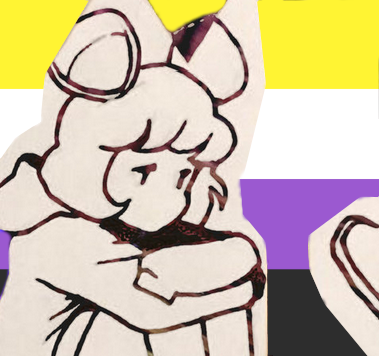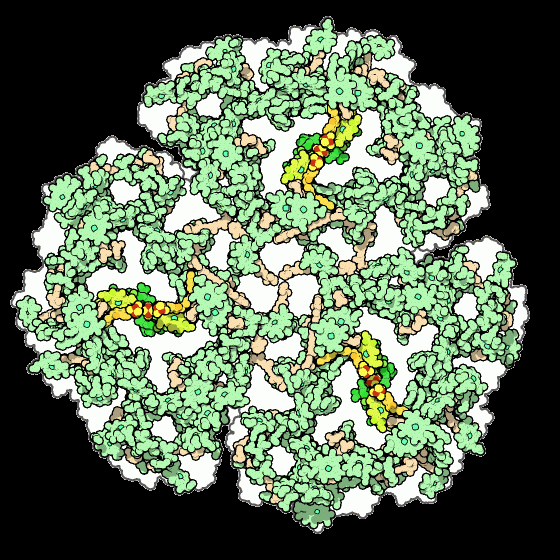I’ve been in a bit of a tough spot with my (highly suspected) autism and haven’t been able to be my masked self in quite a bit. I’m not sure if anyone can relate, but my masking used to be somewhat controllable but now I’m really bad at it—like to the point where I’m hesitant to go out in public because I’ve forgotten how to human. Like I used to be decent at acting in general, but that’s no longer the case
But anyway. I wish so desperately that I could just have access to how NTs conduct themselves in conversation just so I could have a framework for reference. Does something like this exist anywhere? Think of it as me copying people and changing up their behavior just a bit (which is how I’ve gone through my life)
I’m not sure if anyone can relate, but my masking used to be somewhat controllable but now I’m really bad at it—like to the point where I’m hesitant to go out in public because I’ve forgotten how to human. Like I used to be decent at acting in general, but that’s no longer the case>
It was a super common report from autistic people that COVID lockdowns just obliterated their ability to mask.
It's also super common for autistic people to experience the same when they're in burnout.
This is purely a hot take but I imagine that there's a significant portion of autistic people, in particular the ones who have a higher level of responsibility (pets, jobs, being a primary caregiver in a family etc.), that cycle through burnout in their lives. (That's not to say that others don't either but stick with me.) If we take that to be true then we can presume that of these people who are cycling through burnout in their lives, we could assume that a fair proportion of that group cycle through it somewhere between every 5-10 years. Some would definitely be on shorter cycles than that too.
Just using napkin math and making a few assumptions, considering the length of time of the first peaks of the pandemic associated with lockdowns, there's naturally going to be a significant number of people who are either just about ready to burn out or who might have been in the early stages of burnout but typically they would have persevered for maybe another couple of years at best. But instead the lockdowns start and this is such a big moment in history that people are naturally going to mark it as a waypoint for how they relate to "before" and "after".
Now throw in people getting seriously sick, sometimes multiple times, with a virus that is known for often taking a long time to fully recover from (if people manage to recover at all.)
Now throw in a massive disruption to basically all facets of life for a group of people who are notorious for struggling to cope with changes, especially to routine.
Now throw in the uncertainty and everything that comes with that - the stress, all the fear and anxiety, the loneliness and isolation for a group of people who tend to experience these things at a much higher rate than allistic people do.
Then maybe throw in some abrupt deaths of people close to this group - friends, family members, colleagues and coworkers.
Sounds like a perfect storm to induce burnout in autistic people, right?
There's gotta be some unicorns out there who are autistic but do not go through burnout. I could imagine that, given everything detailed above during the height of the lockdowns, some of them would have had that very fragile but functional balance where they never experienced burnout to have been disrupted enough that they experienced their first ever burnout in adulthood.
This is all based on assumption. There's no data out there on this that I'm aware of, and I doubt there ever will be hard data tbh. At best we might get a couple of retrospective self-report studies looking at autistic burnout during the lockdowns, if we're lucky. But autism is chronically understudied and autistic burnout even moreso. I'm not going to hold my breath.
I wish so desperately that I could just have access to how NTs conduct themselves in conversation just so I could have a framework for reference. Does something like this exist anywhere?
The short answer is no and the slightly longer answer is that the closest you'll get is by pouring over vast amounts of academic works in the fields of linguistics and anthropology.
The long answer is that allistic communication is so complex and contextual that you have the problem that either the advice is so general as to often be useless or downright counterproductive ("Smile to show others that you mean well and to endear them to you", "If the mood seems sombre or the people around you are looking glum, make a light joke to ease the tension" - great advice, right? Except when you take that advice and apply it to a funeral.) or it's so hyperspecific that it becomes functionally useless because it has so many caveats and disclaimers that each rule or guideline becomes multiple pages long, like it's some policy document or draft legislation.
If we go to a deeper level, this is actually a question of epistemology.
There is a useful philosophical distinction in epistemology that exists between tacit and explicit knowledge. (I actually had an email exchange disagreeing with a notable processor whose whole jam is this subject because there's a missing category imo, but that's a discussion for another day...) Anyway, here's the short version:
There are things that can be learned through "secondary" means, such as reading, verbal instructions, and observing someone else doing it.
There are things that cannot be learned by reading instructions and can only be learned by a personal process of undertaking that process and refining it to improve your skill at it.
I can teach a person to unlock a door by giving them written instructions if they do not know how to do it.
I cannot teach a person how to pick a lock simply by telling them all of the steps in the process.
Unlocking a door can be considered explicit knowledge.
Picking a lock can be considered implicit knowledge.
Perhaps a more obvious example would be this - if I asked you the following question, your immediate response is going to tell you that you understand tacit and explicit knowledge better than you think you do:
Who would you feel safer being a passenger in a car with: a person who has driven daily for 10 years but has never read any instructions on how to drive or a person who has read every single piece of information about how to drive a car but who has never driven before in their lives?
It's pretty clear that the experienced driver is going to be safer than the person who has never operated a car before, even having read the sum total of writing about how to drive a car.
To elaborate, there's a reason why swimming classes take place in a pool and not a library and there's a reason why you learn to ride a bike by sitting on one rather than by sitting down on a chair and reading a bicycling instruction manual.
(Sidebar: this is also why a lot of people feel like they can't cook - they can follow instructions just fine but the instructions in a recipe are rarely detailed enough for someone to know what the instructions in a step mean unless they already know what they mean prior to picking up the recipe.)
Unfortunately for us, we would much rather that socialising be explicit knowledge but it's absolutely, squarely in the tacit knowledge category. Worse still, due to atypical brain development, autistic people are fundamentally at a disadvantage when it comes to allistic socialising. The exact hows and whys of it are a matter for debate but autism is a neurodevelopmental disorder and that means that autistic people will experience an inordinate degree of difficulty with socialising with allistic people compared to an allistic person. Of course it varies in severity between autistic people but it's central to the diagnostic criteria for autism.
So, to illustrate this idea a bit more - I'm (undiagnosed) dyslexic. But I absolutely, 100% am. I have to consciously think to tell my left from right. Not particularly hard but I slip up occasionally when I'm not paying enough attention. I still occasionally write my lowercase b and lowercase d the wrong way around despite myself. Because of this neurodivergence, no matter how much effort I put in and no matter the amount of practice or training or instruction I receive, at a fundamental level I am still going to struggle with this to an atypical degree for an adult. I have learned strategies to compensate for this deficit but there is no avoiding the fact that my brain is just not well-designed to distinguish left from right or lowercase b from lowercase d. C'est la vie.
Now, for what you've been waiting for, here's a wholly underwhelming example of one piece that would contribute to a sort of guidebook on how to socialise:
You're either going to develop a deep appreciation for Grice's Cooperative Principle and the related maxims because it finally lays out the things that you often struggle with or feel like you've been missing or you're going to find it completely frustrating and insufficient because it is so general that it lacks any real-world applicability and the maxims amount to "Do enough of this to be sufficient, do not provide this in an insufficient or overabundant fashion"
Basically: https://files.catbox.moe/03gteh.mp4
Anyway, I love this stuff and discussions on pragmatics and semantics always make me recall what I think is probably one of the absolute peaks of autistic meme comedy:
Show
Y'all been managing to squeeze some serious effortpost comments out of me recently lol. Kudos!
It was a super common report from autistic people that COVID lockdowns just obliterated their ability to mask.
Frankly even allistic people got worse at socializing in 2020. Took me a year or two to be my old self again, and when I was going to speed dating events strangers and I would often commiserate about it together. I feel the same, to a lesser degree, from WFH instead of working in an office and talking to lots of if people every day.
GOAT post comrade. I don’t even know how to begin to respond or thank you for your service
this is how I feel anytime I read any of their comments ❤️
I want to thank you, though - because as much as it pains me to know that someone is as confused and lost as I am, it is also heartening to know that I am not the only person so confused and lost
So
Sorry everyone, but also, thank you for being vulnerable and showing us your struggles, it helps a lot
Comrade I am probably too vulnerable on the bear site lol I think a lot of the things I post people usually tell their friends but this seems like the safest way to get it all out 🥲
But where else?

I found a YouTube link in your comment. Here are links to the same video on alternative frontends that protect your privacy:
I always figured, or it seemed, that the rules are unwritten and NTs just fuckin know em by default. Sadly Idk if there's a secret sacred Holy Document of Normo Behaviours anywhere. When you ask NTs about common social things, you'll frequently get different answers too, so they don't even seem to agree on their own bullshit.
However someone will probably come into this thread and be able to offer useful tips for making scripts & basic masking, at least.
I don’t think the book exists, but the greatest act of solidarity an NT could commit is writing one that’s actually accurate
It wasn't terribly helpful for me, but I did read something by an autistic person who swore by Emily Post's guide to Etiquette, which ended up resulting in my parents buying me a copy.
It's a very large book with extremely detailed information about how to conduct oneself in a wide variety of social situations. Not sure it's exactly what you're looking for, but it's the closest thing I can think of.
That is the name of the book--Emily Post's Guide to Etiquette. Should be available at any major bookseller.
https://emilypost.com/shop/books/emily-posts-etiquette-18th-edition
Ahh. I think the aforementioned comment is a perfect example for why I need this lol



